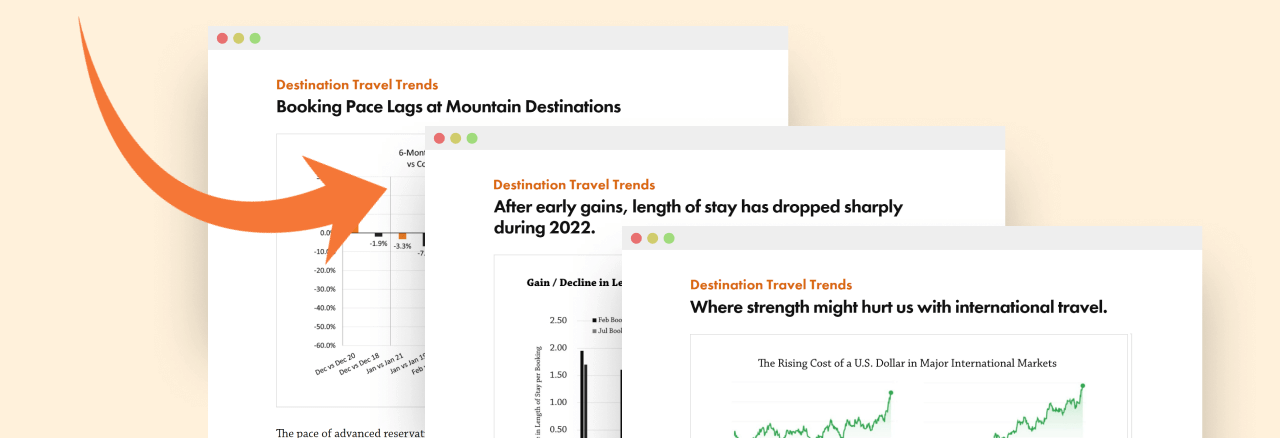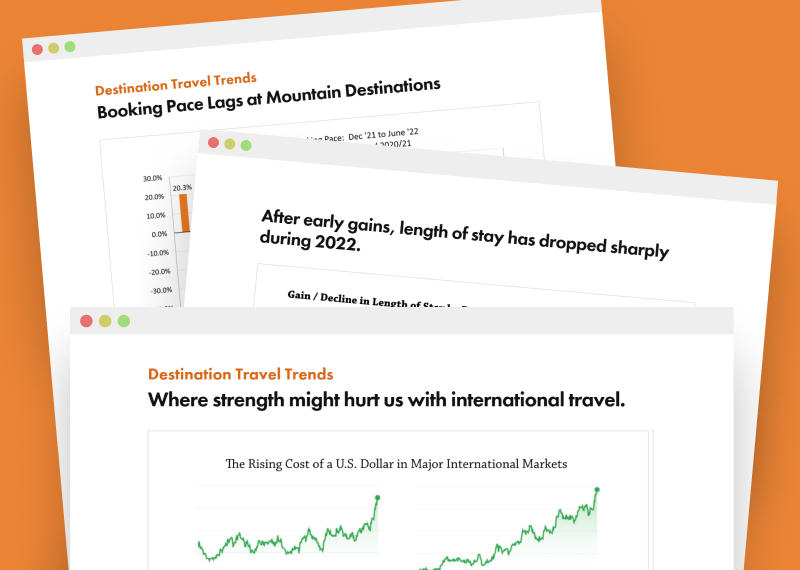

 Tom Foley
Tom Foley
While shifts in Spring Break, Easter, and end of school year are well understood, correlations between when Christmas falls, shifts in December school breaks, and the resulting bookings are somewhat more subtle.
But what’s better: years in which the holidays fall on a Weekend (Fri-Mon) or Midweek (Tues-Thurs)?
#1) Extra Days Off
In years in which Christmas and New Year holidays fall Midweek, there are 2 extra days on which all K-12 students are on break than there are in years when those holidays fall on a Weekend, and 3.25 more days when college students are on break. So, more schools out, better for business, right? Not so fast.
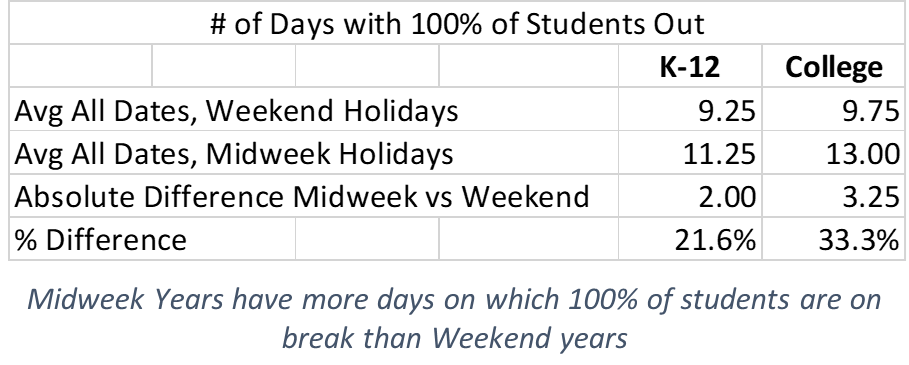
Midweek years have more days on which 100% of students are on break than Weekend years.
#2) Time Before the Holiday
Years with a Midweek holiday consistently have 100% of K-12 students on break by the 21st of the month compared to just 70% on break for Weekend holiday year. But Weekend years start the break process much sooner, with up to 70% on break by the 16th, whereas Midweek years typically have an anemic 10% of K-12’s on break all the way through to the 21st, then spike to 100%. It’s the period 5- to 9 days before the holiday that the difference is made.
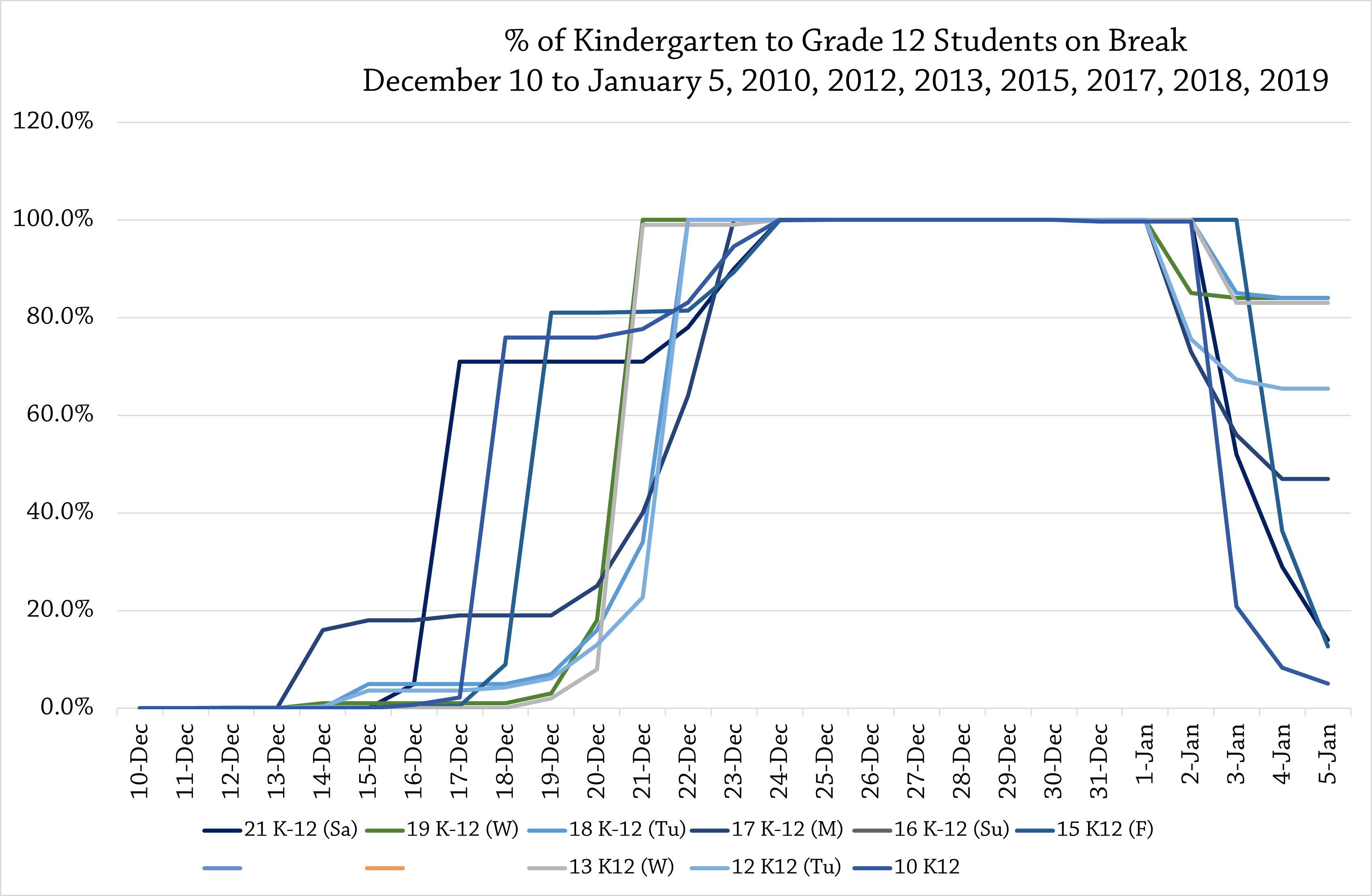
K-12 breaks spike/plateau in Weekend years, and spike in midweek years, making their impact nuanced and complex.
#3) Early Arrivals
Bookings for arrival between the 16th and 21st are dramatically – and consistently – higher in years when the holiday falls on the Weekend than they are in years when it falls on a Weekday as families take advantage that 70% of K-12 kids that are out of school.
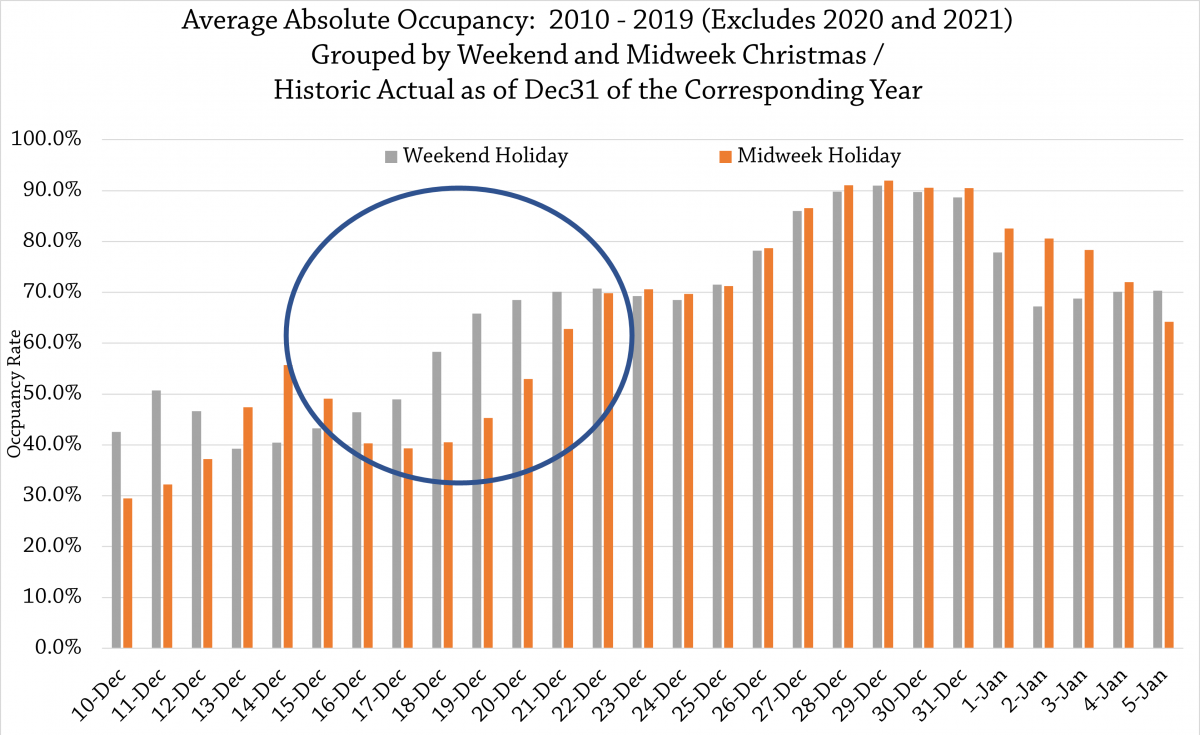
Early breaks for 70% of schools drive strong occupancy gains in years when the Holidays fall on a Weekend.
A few other loose ends:
- It turns out that occupancy from the 21st through the 31st is barely impacted by the day on which the holiday falls. It’s just plain busy.
- College Students have almost no impact on how bookings change due to Weekend or Midweek holidays. They’re a valuable traveler, but their breaks start earlier and end later, and there is little difference in the pattern of their breaks no matter when the holiday falls.
- The end of the holiday season behaves the exact opposite to the beginning. Weekday years see 65% of K-12 students still out through January 5th while weekday years see only 15% on break by January 5th.
Which is better?
So, to answer our question, which is better? It depends. If you’re looking for highest ADR and good pre-season momentum in the week before the holidays, then it’s years when the holidays are on a Weekend. If you want to carry holiday momentum into the New Year, but perhaps with less $ per night, then it’s years with a Weekday Holiday. And, just like the researchers we are, we’ve managed to cover our bases and not pick favorites.
Have a question? Just ask.

Tyler Maynard
SVP of Business Development
Ski / Golf / Destination Research
Schedule a Call with Tyler→

Doug Kellogg
Director of Business Development
Hospitality / Attractions
Schedule a Call with Doug→
If you're a current Inntopia customer, contact support directly for the quickest response →
Request Demo
A member of our team will get back to you ASAP to schedule a convenient time.

